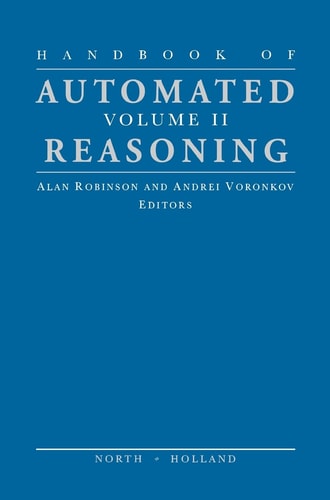

Most ebook files are in PDF format, so you can easily read them using various software such as Foxit Reader or directly on the Google Chrome browser.
Some ebook files are released by publishers in other formats such as .awz, .mobi, .epub, .fb2, etc. You may need to install specific software to read these formats on mobile/PC, such as Calibre.
Please read the tutorial at this link: https://ebookbell.com/faq
We offer FREE conversion to the popular formats you request; however, this may take some time. Therefore, right after payment, please email us, and we will try to provide the service as quickly as possible.
For some exceptional file formats or broken links (if any), please refrain from opening any disputes. Instead, email us first, and we will try to assist within a maximum of 6 hours.
EbookBell Team

4.3
88 reviewsThe book consists of eight parts. After an overview of the early history of automated deduction, the areas covered are reasoning methods in first-order logic; equality and other built-in theories; methods of automated reasoning using induction; higher-order logic, which is used in a number of automatic and interactive proof-development systems; automated reasoning in nonclassical logics; decidable classes and model building; and implementation-related questions.
With the ready availability of serious computer power, deductive reasoning, especially as embodied in mathematics, presented an ideal target for those interested in experimenting with computer programs that purported to implement the \"higher\" human faculties.